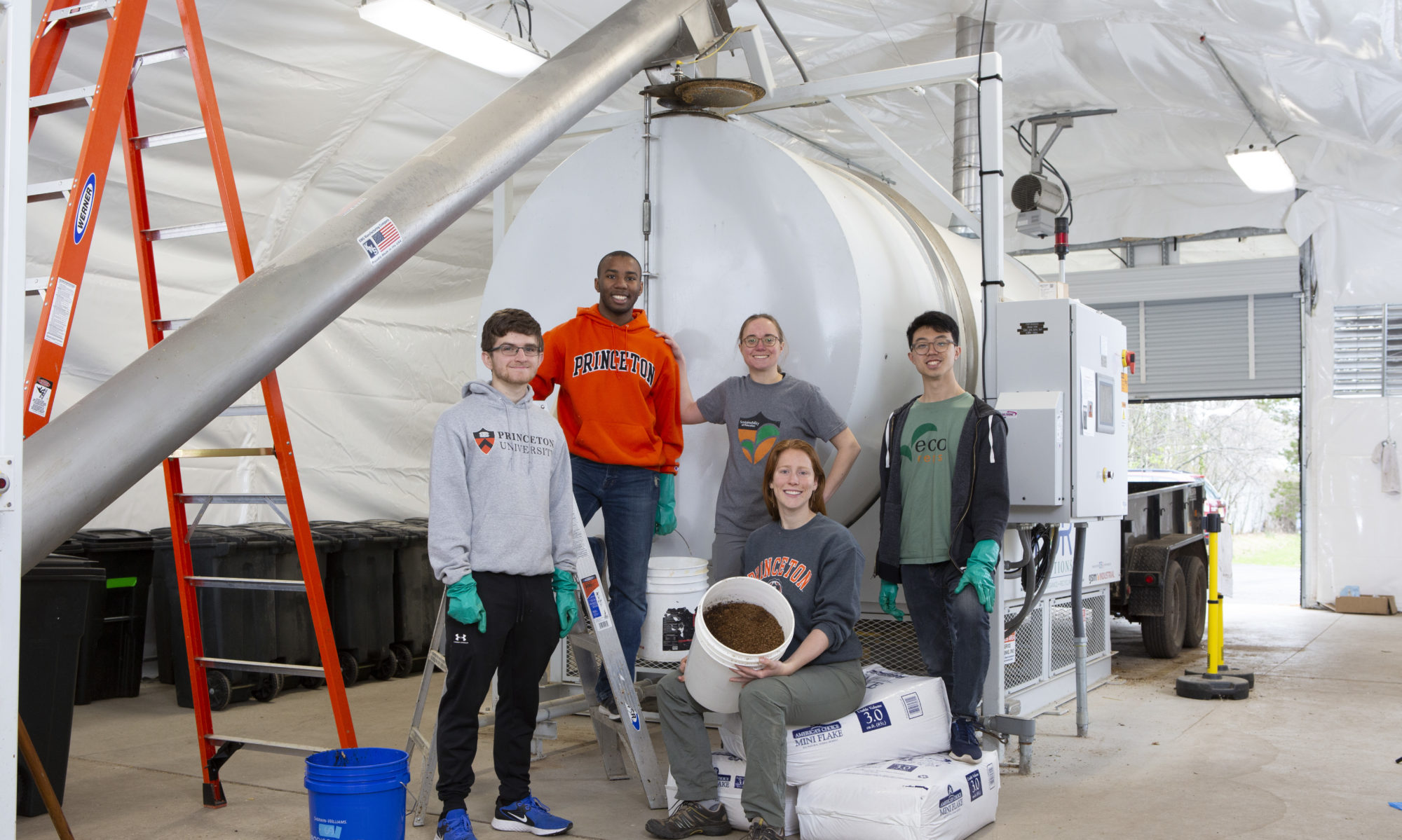Happy belated Earth Day from the S.C.R.A.P. Lab!

The S.C.R.A.P. Lab represents one way in which students and staff from across campus can partner on a daily basis to reduce waste and promote a circular economy on campus through a “table to soil” approach. Pictured above is just a handful of those involved in the project.
In bigger news, Princeton University’s Office of Sustainability released its new Sustainability Action Plan on Earth Day which sets bold targets and outlines innovative strategies to engage all faculty, staff and students in creating a sustainable campus and future toward 2026 and beyond.
In addition to a target for net zero greenhouse gas emissions by 2046 — the University’s 300th anniversary — the Plan calls for six other action areas including an aim to cultivate healthy and resilient habitats and achieve zero waste by reducing waste and expanding sustainable purchasing.
The S.C.R.A.P. Lab is one strategy that can simultaneously move the campus toward zero waste and healthier and more resilient habitats by…
- Advancing evidence-based sustainable landscape management solutions. The S.C.R.A.P. Lab will strengthen and further support studies by faculty, staff, and students on how to use compost and compost tea to reduce the University’s reliance on fossil-fuel based landscape inputs to control disease and pests.
- Providing an outlet for increased food scraps collection across campus to locations other than major dining venues. If done strategically, expanded food scraps collection would not only reduce landfill waste, but the number of loads of recyclable material that are rejected at the MRF (materials recycling facility) due to items coated with food residue.
- Advancing evidence-based sustainable purchasing solutions by studying the compostability of different food service ware so that the items that the campus buys can be tied to compostable products whenever possible. We’ve had some successes so far on a smaller scale with World Centric plant fiber clamshells, and the Huhtamaki ‘Chinet’ plate, so we have initiated efforts to test larger loads of these products, starting with last week’s effort to collect the Chinet plates (made from molded recycled paper) after Frist Late Meal (see below).


[Pictured at left: Members of the sustainability group, Greening Dining, helped students correctly sort their unused items during Late Meal. All food scraps and Chinet plates were captured and sent to the S.C.R.A.P. Lab for processing the next day (Pictured at right)]
Stay tuned for results!
Weekly Data: 4/12 – 4/18
| Total Food | Campus Center/Cafes |
Academic/Residential Buildings
|
Wood shavings (BA/CS)
|
% BA/CS |
Compost Off-loaded | GHG Emissions Saved (MTCO2eq) | |
| Week Totals (lbs.) | 3,089 | 2,954 | 135 | 1,011 | 33% | 2,000 | |
| CUMULATIVE (lbs) | 71,161 | 70,498 | 662 | 22,073 | 31% | 59,500 | 21 |
